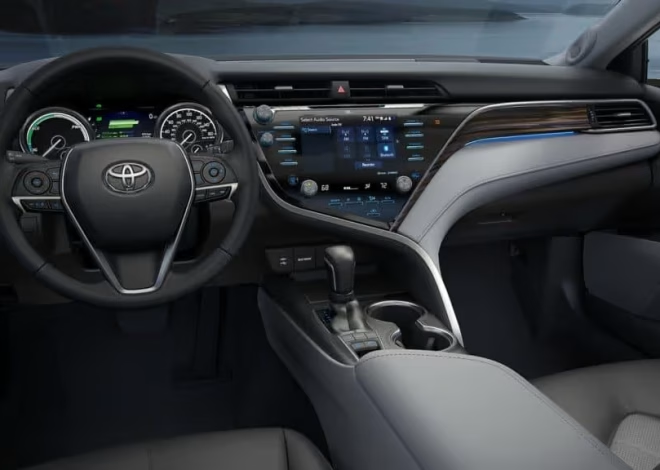
The Impact of Tariffs on the Global Auto Market
The global auto market is a complex and interconnected network that spans continents, with vehicles and parts manufactured and traded across international borders. Tariffs, or taxes imposed on imported goods, play a significant role in shaping the dynamics of this market. While tariffs can be used to protect domestic industries, they also influence the price of vehicles, the availability of parts, and the competitiveness of automakers worldwide. In this article, we will explore the impact of tariffs on the global auto market, examining both the benefits and challenges they present.

What Are Tariffs, and Why Are They Used?
Tariffs are taxes imposed by governments on imported goods, including automobiles and auto parts. Governments use tariffs for various reasons, including:
- Protecting Domestic Industries: By making imported goods more expensive, tariffs can encourage consumers to buy domestically produced products, thus supporting local businesses and manufacturing.
- Generating Revenue: Tariffs provide a source of income for governments.
- Trade Leverage: Tariffs can be used as a bargaining tool in international trade negotiations.
However, while tariffs may benefit certain industries, they can also lead to higher prices for consumers and disruptions in global supply chains.
The Impact of Tariffs on Vehicle Prices
- Higher Costs for Imported Vehicles
One of the most immediate effects of tariffs on the global auto market is the increase in the cost of imported vehicles. When tariffs are imposed on cars coming from specific countries, automakers are often forced to raise their prices to offset the additional tax burden. This results in higher sticker prices for consumers, reducing the competitiveness of imported vehicles in the domestic market.
For example, when tariffs were imposed on European and Asian car manufacturers in the United States, the cost of popular models like BMW, Mercedes, and Toyota increased. In markets where price sensitivity is high, this can lead to reduced demand for foreign cars, pushing buyers toward cheaper, domestically produced alternatives.
- Increased Prices for Auto Parts
The impact of tariffs extends beyond fully assembled vehicles to the parts and components used in car manufacturing. Many automakers rely on a global supply chain to source materials and parts, including engines, transmissions, and electronics. When tariffs are placed on these imported parts, the cost of manufacturing vehicles rises.
This, in turn, affects not only the price of imported vehicles but also the cost of vehicles assembled domestically. Even U.S.-manufactured cars may see price increases due to the higher cost of imported components, passing the expense on to consumers.
The Effect on Automakers and Supply Chains
- Disruption to Global Supply Chains
The modern auto industry is heavily reliant on a global supply chain, with parts and components often sourced from multiple countries. Tariffs can disrupt these supply chains by making it more expensive or logistically challenging to import critical components. As a result, automakers may face production delays, increased costs, and inefficiencies as they adjust to sourcing parts from new suppliers or paying higher fees for imports.
For example, tariffs imposed on Chinese auto parts in recent years affected many global automakers, as China is a major producer of components such as electronics, batteries, and steel. Automakers were forced to reconsider their supply chains, potentially moving production to other countries or increasing prices to cover the higher costs.
- Impact on Profit Margins
For automakers, tariffs can squeeze profit margins. When tariffs are imposed on imported vehicles or parts, automakers must decide whether to absorb the increased costs or pass them on to consumers in the form of higher prices. In highly competitive markets, automakers may be reluctant to raise prices for fear of losing market share, leading to lower profitability.
How Tariffs Affect Consumer Choice
- Limited Availability of Foreign Brands
Tariffs can make foreign brands less competitive in certain markets, limiting consumer choice. When foreign vehicles become significantly more expensive due to tariffs, consumers may opt for domestically produced alternatives. This reduces the diversity of options available in the market and can lead to a decrease in innovation, as competition from foreign automakers drives improvements in quality and technology.
- Impact on Electric Vehicles (EVs)
The global shift toward electric vehicles (EVs) has also been impacted by tariffs. Many EVs, as well as their key components like batteries, are produced in countries like China and South Korea. Tariffs on these imports can slow the adoption of EVs by raising their prices and making them less affordable for consumers.
The Global Trade War and Its Impact on the Auto Industry
In recent years, trade tensions between major economies, such as the United States, China, and the European Union, have led to the imposition of tariffs on automobiles and parts. These tariffs, part of broader trade wars, have disrupted the global auto market by increasing costs, reducing demand, and complicating supply chains.
For instance, the U.S.-China trade war led to tariffs on billions of dollars worth of goods, including vehicles and parts. This not only affected automakers in both countries but also had ripple effects across the global auto industry, as companies struggled to adapt to the new trade environment.
Conclusion
Tariffs have a profound impact on the global auto market, influencing everything from vehicle prices and supply chains to consumer choice and innovation. While they can protect domestic industries and create revenue for governments, they also introduce challenges for automakers and consumers alike. As the world continues to navigate the complexities of international trade, the role of tariffs in the auto industry will remain a key factor shaping the market’s future.


